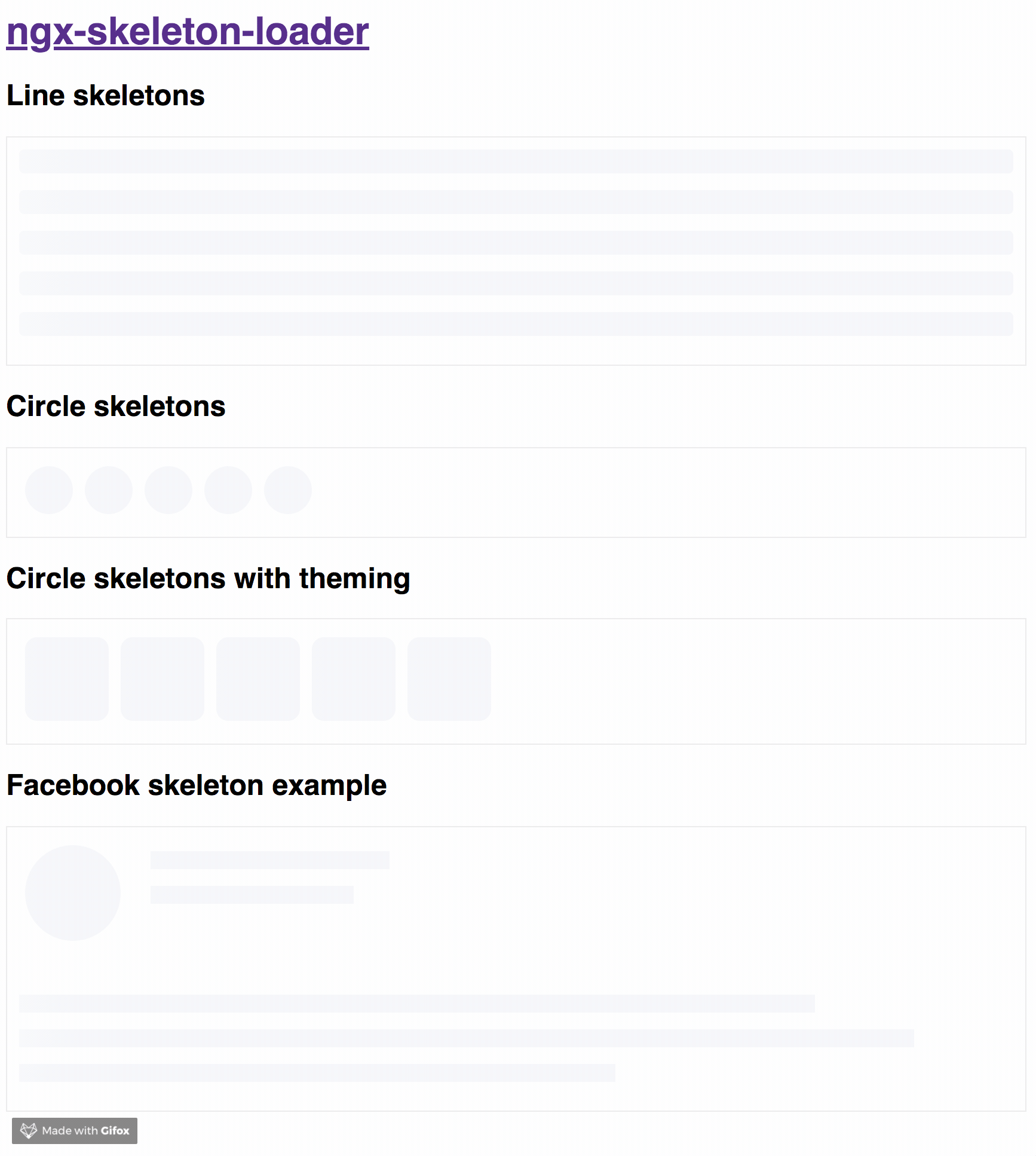The idea of this component is make the process transparent and easier. So the main point is integrate this component with other tooling process, such as:
- Server-side rendering;
- Progressive rendering;
- Any other that you like :)
It's totally transparent for you and you can integrate easier in your application, improving your user experience 🎉
Try out our demo on Stackblitz!
You can get it on NPM installing ngx-skeleton-loader module as a project dependency.
npm install ngx-skeleton-loader --saveYou'll need to add NgxSkeletonLoaderModule to your application module. So that, the <ngx-skeleton-loeader> components will be accessible in your application.
@NgModule({
declarations: [
YourAppComponent
],
imports: [
NgxSkeletonLoaderModule,
...
],
providers: [],
bootstrap: [YourAppComponent]
})
export class YourAppComponent {}After that, you can use the featureToggle components in your templates, passing the configuration data into the component itself.
ngx-skeleton-loader: Handle the skeleton animation and the skeleton styles of your app;
<div class="item"><ngx-skeleton-loader count="5" appearance="circle"> </ngx-skeleton-loader></div>- This project uses Angular CLI as base. That means you just need to run
npm startand access the linkhttp://localhost:4200in your browser
- Run
npm testfor run tests. In case you want to test using watch, please usenpm run tdd
this project is using np package to publish, which makes things straightforward. EX: np <patch|minor|major> --contents=dist/ngx-skeleton-loader
For more details, please check np package on npmjs.com
For any type of contribution, please follow the instructions in CONTRIBUTING.md and read CODE_OF_CONDUCT.md files.
Wilson Mendes (willmendesneto)





